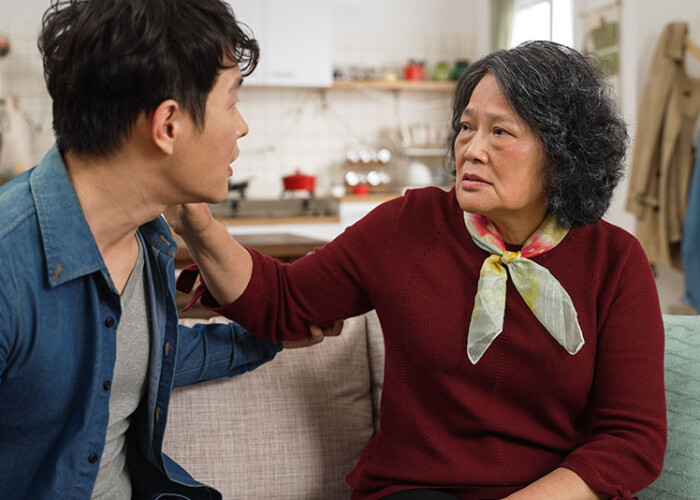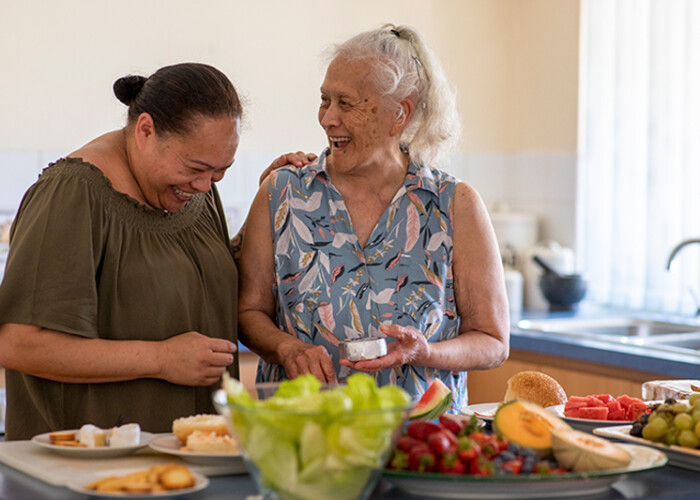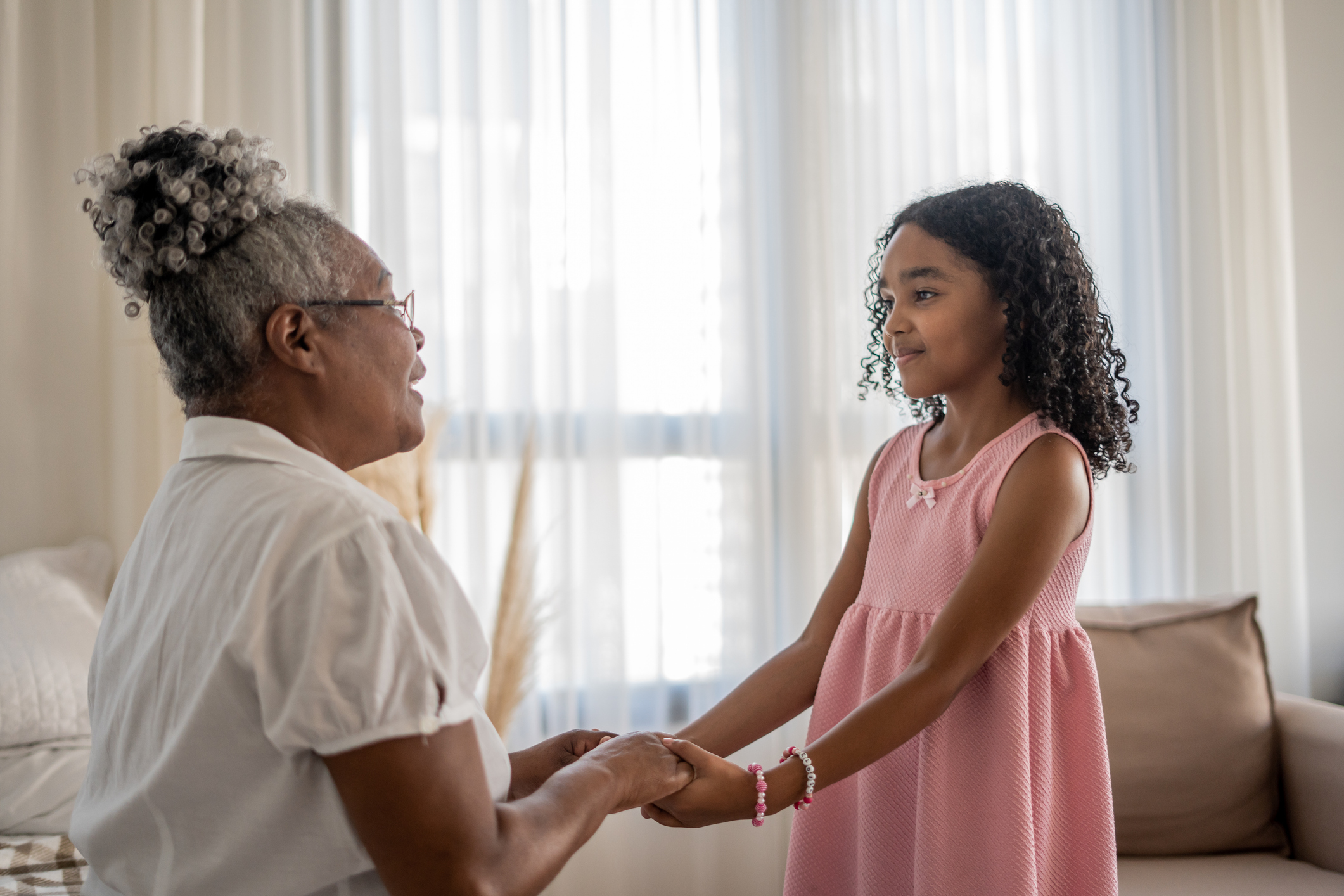Respite Care
How to Handle a Dementia Outburst in Public
If you’re unsure how to effectively defuse a dementia outburst in public, these strategies are for you!
Dementia is anything but predictable. A loved one’s mood, personality, and behaviors can shift without warning, making daily life feel like a constant balancing act. Managing these changes at home is one thing—but what about when you’re in a restaurant, grocery store, or waiting in line at the pharmacy; how should you handle a dementia outburst in public?
Could You Be Experiencing Caregiver PTSD?
Caregiver PTSD is, surprisingly, the most common form of post-traumatic stress disorder.
When you think of PTSD (post-traumatic stress disorder), your mind might conjure images of soldiers returning from battle or individuals who’ve faced extreme life-threatening events. While PTSD is certainly linked to those experiences, it isn’t confined to them. In fact, PTSD can develop after any deeply distressing event—including providing care for a family member. Surprising, isn’t it? Caregiver PTSD is a significant yet often overlooked issue, as the focus is typically placed on the person receiving care rather than the caregiver’s emotional and mental health.
How to Handle Loss of Recognition in Dementia
Loss of recognition in dementia is never easy to accept, but these tips will help.
You’ve been caring for your mom since her dementia diagnosis, doing your best to manage the ups and downs of the disease. One day, she looks at you with a blank stare or calls you by the name of someone else—a sibling, her spouse, or even her own parent. The sting of the loss of recognition in dementia is overwhelming. Should you correct her? Ignore it? Or embrace the new role she’s assigned you?
Recognition loss is one of dementia’s most heartbreaking effects. Watching someone you love struggle to connect the dots of who you are is never easy. However, how you respond in these moments can shape the interaction and bring peace to the person you love.
How to Respond to Recognition … Read More »
Healthy Ways to Manage Emotional Empathy for Caregivers
Balancing emotional empathy for caregivers can lead to healthier, more compassionate care for the person you love.
Empathy is, naturally, a crucial characteristic of effective caregiving. The ability to put yourself in another person’s shoes helps you to better meet their needs. However, there is a particular form of empathy you need to understand in order to guard your own health and wellness: emotional empathy for caregivers.
Emotional empathy takes caring to another level. Instead of simply understanding how another person is feeling, emotional empathy includes actually experiencing their feelings. For instance, if you’re someone who is highly emotionally empathetic, sitting beside a person who is crying will bring tears to your own eyes. If they’re in pain, you’ll also experience distress. You’re the type of person who will spring into action when someone has an immediate need.
Read More »
What You Need to Know About End-of-Life Dementia Care
Caring for a loved one as they near the end of life is an incredibly personal journey. When Alzheimer’s disease is part of this experience, the path can become even more intricate. Unlike many other terminal illnesses, dementia progresses in unpredictable ways, requiring us to adjust our approach to end-of-life dementia care.
Identifying End-of-Life Signs in Dementia
In many diseases, the end-of-life stage is marked by noticeable changes in areas such as eating, sleeping, and socializing, often appearing two to four months before death. However, with Alzheimer’s disease, these indicators can emerge much earlier, sometimes even years in advance. These are the key signs to watch for:
Extended Sleep Patterns: Long periods of sleep can occur well before the final stages of life in someone with dementia. While this may be an early sign, it can also continue over a … Read More »
Feeling Bored as a Caregiver? Try These Ideas!
If you’re feeling bored as a caregiver, try these helpful suggestions.
It’s hard to admit but even harder to avoid. Feeling bored as a caregiver is a common response to spending so much time together, completing the same tasks, engaging in the exact same activities, and running out of intriguing conversation topics. This is not by any means associated with your feelings for the person in your care. In fact, they could be feeling just as tired of a stagnant routine.
Feeling Bored as a Caregiver? Try These Ideas!
Identifying the signs of substance misuse in older adults is the first step towards getting them help.
It’s not unusual for Dad to enjoy a glass or two of wine with dinner, but lately, you’ve noticed that he’s gravitating towards stronger drinks more frequently, and earlier in the day. He might say it helps with sleep or eases the aches of arthritis, but is there more to be concerned about?
How to Become a More Patient Caregiver
Find the tips you need here to learn how to become a more patient caregiver.
Does your blood pressure soar once you finally finish filling your cart with groceries, simply to find only one checkout lane open and a line of aggravated shoppers in front of you? Or when you arrive 5 minutes early for a doctor’s appointment, but have to wait 40 minutes to be seen? Many people just seem to exude an innate sense of patience, regardless of the circumstances. Wouldn’t you like to know their secret, particularly when it comes to knowing how to become a more patient caregiver for someone you love?
Get Cooking With These Creative Dementia Care Activities
If there’s one thing that connects us all, it’s food! Think about how many cherished memories have been made through the years that included food at the center of them all: holiday meals, birthday parties, wedding celebrations. Even ordinary days include routines that become ingrained in us around food, from that first aromatic cup of coffee in the morning to a shared bowl of buttery popcorn with family while watching a show on television.
It really is no surprise that food is not just a necessity for our physical health, but often a powerful way to connect with someone with dementia. Here are several creative dementia care activities you can try to help spark memories while engaging all the senses through food.
Storytelling. Pull out an old cookbook and look through the recipes together to determine if any spark memories. … Read More »
What to Do When a Parent Refuses Care
When a parent refuses care, these tips can help you come to a resolution.
Let’s say you’re starting to notice some warning signs that cause you to worry about Dad’s ability to continue to take care of himself. Perhaps he’s struggling to maintain the home the way he always has. Or maybe he had a close call while driving that could have caused injury to himself or another person. Maybe he just seems more disoriented lately. Whatever the reason, you’ve decided to talk with him about home care services. The problem is, he refuses to even entertain the idea. What are you to do when a parent refuses care that they desperately need?
If you’re at an impasse on how to proceed, these ideas can be helpful.
Let him know you’re in this together. Digging in your heels and … Read More »

















